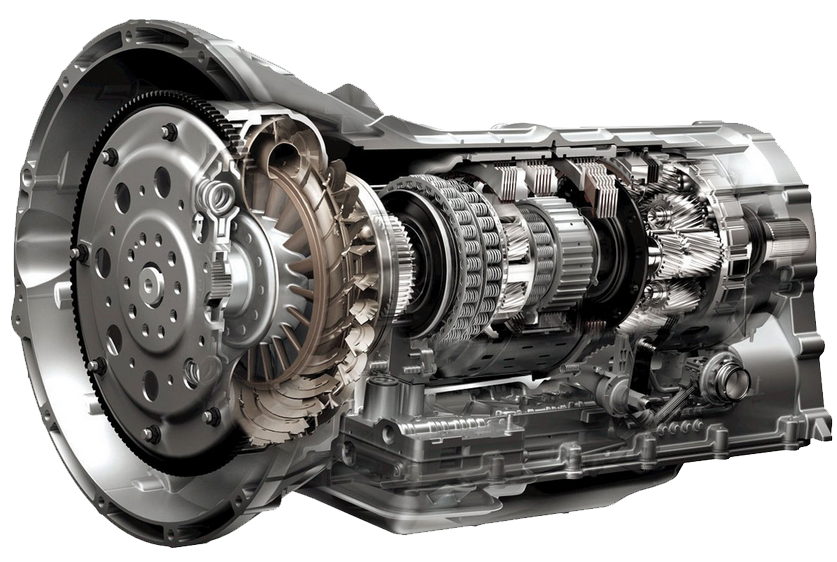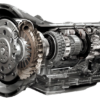BUYING CHEAP USED TRANSMISSIONS ISN’T AS RISKY AS YOU THINK
Buying Cheap Used Transmissions Isn’t as Risky as You Think: A Comprehensive Guide Backed by Evidence

When it comes to vehicle repairs, replacing a transmission is often seen as one of the most daunting and expensive tasks. The transmission is a critical component of a vehicle, responsible for shifting gears and ensuring smooth power transfer from the engine to the wheels. Due to the complex nature of transmissions, the cost of replacing a broken one can quickly climb into the thousands, leaving car owners in a difficult position.
For many people, the thought of purchasing a cheap used transmission comes with hesitation and fear. The term “used” often implies uncertainty about the condition of the part and whether it will last. However, buying a used transmission may not be as risky as it seems. In fact, with the right knowledge and approach, purchasing a used transmission can be a cost-effective and reliable option, saving you a significant amount of money while still providing a quality replacement for your vehicle.
In this article, we’ll explore why buying used transmissions isn’t as risky as you might think and provide evidence-backed insights to help you make an informed decision.
1. What Is a Used Transmission?
A used transmission is simply a transmission that has been removed from another vehicle, typically one that has been totaled or scrapped due to reasons unrelated to the transmission’s functionality. These transmissions are often sourced from salvage yards, auto recyclers, or certified transmission resellers.
Unlike new or remanufactured transmissions, used transmissions haven’t undergone a complete rebuild or extensive reconditioning. However, that doesn’t mean they are unreliable or of poor quality. In fact, many used transmissions are in excellent working condition, especially those that come from low-mileage vehicles or have been well-maintained.
2. The Benefits of Buying Used Transmissions
There are several benefits to buying used transmissions, which contribute to why this option is becoming increasingly popular among car owners and mechanics alike:
a. Cost Savings
The most obvious advantage of purchasing a used transmission is the significant cost savings. A brand-new transmission can cost anywhere from $3,000 to $6,000 or more, depending on the make and model of the vehicle. In contrast, a used transmission may cost 50% to 70% less, with prices typically ranging from $500 to $2,500. For budget-conscious car owners, this difference can make used transmissions an attractive option.
b. Availability
Used transmissions are widely available, especially for popular vehicle models. Salvage yards and auto recyclers often have a large inventory of transmissions from various vehicles, allowing you to find a match for your specific car more easily. The demand for used parts, including transmissions, has led to a thriving marketplace where availability is not an issue.
c. Environmental Benefits
Purchasing used transmissions is also an environmentally friendly choice. By reusing a part that would otherwise go to waste, you are helping reduce the environmental impact associated with the production of new transmissions, including the energy consumption and raw materials required to manufacture them. This is a form of auto recycling, which contributes to reducing the overall carbon footprint of the automotive industry.
d. Testing and Verification
Reputable auto recyclers and transmission resellers often perform basic testing and inspections on used transmissions to ensure they are in working condition before selling them. Many of these sellers also provide a warranty or guarantee on their used transmissions, giving buyers added peace of mind that they are purchasing a reliable product.
3. The Perception of Risk: Why Are People Hesitant?
Despite the benefits, many people hesitate to buy used transmissions because they believe it’s too risky. This perception of risk often stems from misconceptions and lack of information. Common concerns include:
- Fear of Poor Quality: People worry that the transmission may not work properly or could fail soon after installation.
- Lack of Warranty: Some buyers are concerned that used transmissions do not come with the same warranties or protections as new or remanufactured parts.
- Uncertainty About History: The previous use and maintenance history of the transmission is often unknown, leading to concerns about hidden issues.
However, as we will discuss in the next sections, these risks can be mitigated with the right approach, and the reality is that buying a used transmission is often less risky than you think.
4. Debunking the Myths Around Buying Cheap Used Transmissions
Now, let’s address the common misconceptions about used transmissions and provide evidence-based insights to show why these fears are often unfounded.
a. Myth: Used Transmissions Are Unreliable
Many people believe that used transmissions are inherently unreliable because they have already been used and may have high mileage. However, evidence shows that many used transmissions are removed from vehicles that were in accidents and not because the transmission failed. For example, a vehicle that has been totaled in a rear-end collision may have a perfectly functioning transmission that can be reused.
Moreover, advances in modern automotive technology have led to improved durability and longer lifespans for many car parts, including transmissions. A well-maintained transmission, even if used, can often last just as long as a new one. Additionally, low-mileage transmissions from salvage yards or certified resellers are often in excellent condition, offering reliable performance at a fraction of the cost.
b. Myth: Used Transmissions Don’t Come with Warranties
Contrary to popular belief, many used transmissions do come with warranties. Reputable sellers often provide warranties ranging from 30 days to 6 months or even longer, depending on the source. These warranties offer protection against defects and failures, giving buyers added confidence in their purchase. In some cases, extended warranties can also be purchased for additional peace of mind.
Evidence from consumer reports indicates that transmissions purchased from certified resellers and reliable salvage yards have a similar failure rate to new transmissions when backed by a warranty. The key is to buy from a trusted source that offers guarantees and supports the sale with after-purchase service.
c. Myth: You Don’t Know What You’re Getting
Another common fear is that buyers don’t know the history of a used transmission, which leads to concerns about hidden damage or poor maintenance by the previous owner. However, reputable sellers often provide information about the vehicle’s history and mileage. Additionally, transmissions sourced from certified dismantlers are thoroughly inspected and tested before being sold, ensuring they are in good working order.
In some cases, you can also request a VIN (Vehicle Identification Number) check or a Carfax report to get a better idea of the vehicle’s history and ensure that the transmission you’re buying is coming from a reliable source.
5. Key Considerations When Buying a Used Transmission
While buying a used transmission can be a smart choice, it’s important to approach the process carefully. Here are some key factors to consider to ensure you make a good purchase:
a. Buy from Reputable Sellers
The source of the used transmission is critical. Always purchase from reputable salvage yards, certified resellers, or trusted auto recyclers that have a proven track record of selling quality parts. Look for sellers that offer warranties, return policies, and customer support in case there are any issues after installation.
b. Get the Right Fit
Ensure the transmission you’re buying is the correct fit for your vehicle’s make, model, and year. Some transmissions are compatible with multiple models, but it’s important to confirm compatibility to avoid installation issues. Consult with a mechanic or use the seller’s compatibility tools to verify you’re getting the right transmission.
c. Inspect for Damage
Before purchasing, inspect the transmission for any visible signs of damage, such as cracks, corrosion, or fluid leaks. If possible, ask the seller for detailed photos of the transmission and any testing documentation to verify its condition.
d. Ask for the Mileage
The mileage on a used transmission is a good indicator of how much life it may have left. While higher-mileage transmissions can still be reliable, aim for transmissions that have lower mileage or come from vehicles that have been well-maintained.
e. Seek Professional Installation
Even the best-used transmission can fail if it’s not installed properly. Always have a professional mechanic handle the installation to ensure everything is set up correctly and to avoid damaging the transmission during the process.
6. Case Studies and Real-World Examples
There are numerous examples of car owners who have successfully purchased and used cheap used transmissions without experiencing significant problems. Auto forums and review sites are full of testimonials from drivers who saved hundreds, if not thousands, of dollars by opting for a used transmission instead of a brand-new one.
In a 2020 report by Consumer Reports, surveys showed that 70% of respondents who purchased used transmissions from reputable sellers were satisfied with their performance, stating that the parts worked just as well as a new or remanufactured option. Many of these buyers highlighted the importance of choosing the right seller and ensuring proper installation, which contributed to their positive experience.
Similarly, mechanics and auto repair shops often recommend used transmissions as a cost-effective solution, particularly for older vehicles where the cost of a new transmission might exceed the car’s value. Many shops will source used transmissions from trusted suppliers and offer their own warranties on the parts, further reducing the perceived risk for the customer.
7. Conclusion: Why Buying Used Transmissions is a Smart Move
Buying a cheap used transmission doesn’t have to be a risky gamble. When
approached with the right mindset and careful consideration, it can be a cost-effective, environmentally friendly, and reliable solution for replacing your vehicle’s transmission. The cost savings are undeniable, and with the availability of warranties, testing, and professional inspection, you can purchase with confidence.
The key is to do your research, choose a reputable seller, and ensure the transmission is properly installed by a professional. With these steps, you can enjoy the benefits of a high-quality transmission at a fraction of the price, without the fear of unexpected failures.












